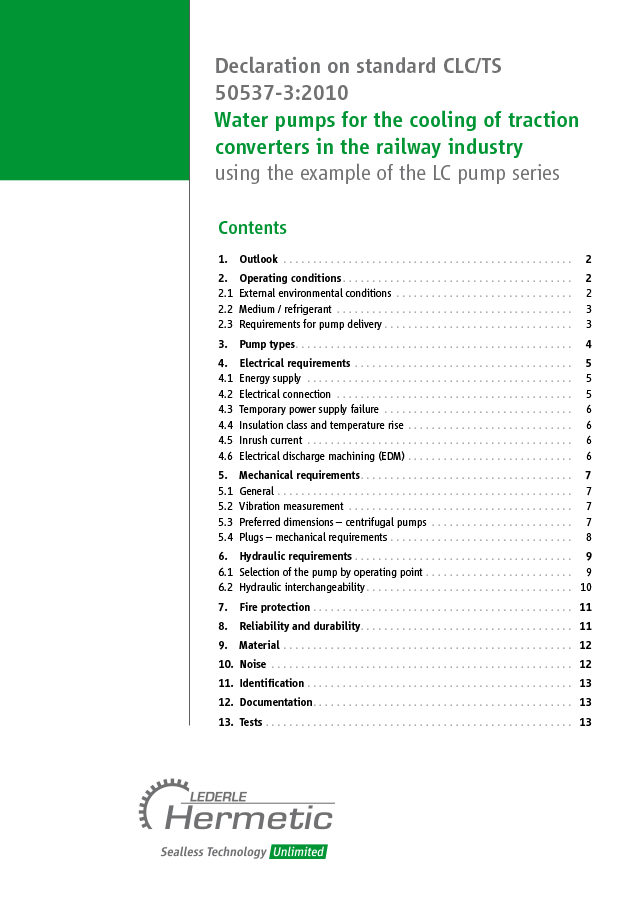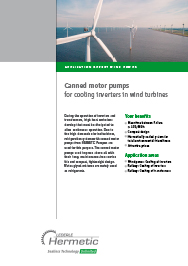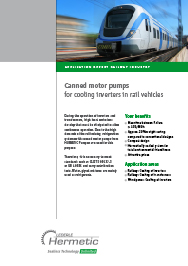Water / Water glycol (H2O)
Water is one of the most common refrigerants worldwide. Water-glycol mixtures are based on a combination of water and glycol, such as ethylene glycol, which acts as anti-freeze and anti-corrosion agent. The mixture may have a different composition depending on the required temperature range. The freezing point can be lowered to –50 °C. Typical applications are cooling inverters in rail vehicles.
ADVANTAGES AND DISADVANTAGES
Advantages of water / water glycol mixtures lie in the low-cost procurement, the worldwide availability, the non-toxic material property and the high specific heat capacity of water. Due to its environmentally friendly properties, water / water glycol mixtures count as natural refrigerants. However, there are difficulties due to the required compressor power. Compared to an ammonia compressor with the same cooling capacity, a compressor for water has to suck in and compress a volume flow that is up to 300 times as large. This is the reason why the water refrigeration system takes up a very large space.
PROPERTIES
- R718 (Water)
- Global Warming Potential (GWP): 0 (*pure water)
- Density (0 °C): 999.7 kg/m3
- Spec. heat (0 °C): 4.195 kJ/kgK
- Vapor pressure (0 °C): 0.001 MPa


